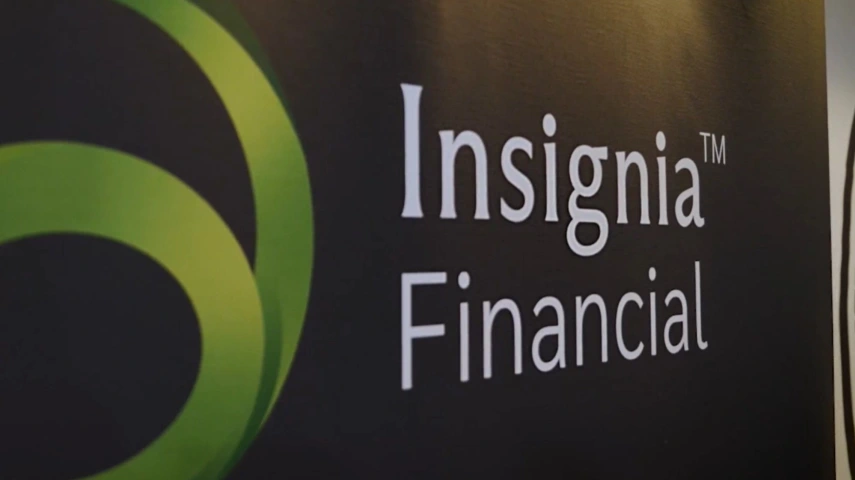Low stickiness impacts Insignia's competitive standing: Morningstar



While the acquisition of Insignia by CC Capital will help the business, Morningstar believes customer and adviser loyalty will be key as to whether it can regain its pre-royal commission standing.
It was announced earlier this week that CC Capital had entered into a scheme implementation deed to acquire 100 per cent of Insignia for a price of $4.80 per share, slightly less than the $5 originally offered. This followed a fierce bidding process between CC Capital and Bain Capital, before Bain exited a few weeks ago after a process of due diligence.
Given the lack of other remaining bidders in the process, Morningstar said the “discount is not excessive” and adequately compensates shareholders, particularly given CC Capital has been a persistent bidder throughout the process.
"Insignia's fundamentals are improving, supported by cost reductions, moderating net outflows and the compounding of client funds."
Commenting on the deal, Morningstar flagged the challenges that have impacted the firm and peers since the Hayne royal commission in 2018 which have “materially reduced the competitive advantage” previously held by the firm and eroded its market positioning.
While it has managed reputational risk better than rival AMP thanks to its multi-brand model which has allowed Insignia to consistently attract client funds, AMP has enacted a raft of product enhancements which have improved new business leads and greater client retention. In its quarterly results this week, AMP said it has actively doubled down on hunting new clients which has led to greater cashflow for its platform and superannuation and investment division. In particular, the superannuation and investment division reported its first quarter of inflows since 2017.
On the other hand, Morningstar said Insignia struggles with a low level of "stickiness" from its clients which could impact future flows.
“We are not convinced it can leverage its brands to generate strong inflows or justify premium pricing over competitors. Looking ahead, we do not foresee strong customer loyalty towards Insignia or a high degree of stickiness between clients and Insignia advisers,” it said in an analyst note.
“We do not expect Insignia advisers to attract significantly higher inflows than its competitors. These challenges are partially driven by stricter industry regulations on wealth managers including higher adviser due diligence, education and compliance requirements. The competitive landscape has also changed, reducing the distinction between a large, vertically integrated wealth manager like Insignia and an independent dealer group in terms of advice quality.
“We do not expect Insignia to regain its pre-royal commission competitive standing. Moving forward, all wealth managers will likely improve advice and compliance standards, reducing the perceived benefit of choosing an Insignia adviser over independent financial planners.
“If advisers leave Insignia, this would narrow the firm’s distribution reach and potentially dampen fund inflows, ultimately diminishing competitive strength.”
The research house had previously cast its eye over the division between Insignia and Rhombus financial advisers, which was enacted a year ago, and warned adviser attrition could be greater than expected if advisers shun the salaried advice model.
Platform
One problematic area flagged by the team was its platform which it said is losing market share and is less profitable against competitors, such as specialist platform providers HUB24 and Netwealth.
In its quarterly results, Insignia said funds under administration on its wrap platform stand at $102.9 billion as of 30 June, having received $1.1 billion in inflows during the three months. Having once been Australia’s largest platform, it now sits in third place behind HUB24 ($136 billion) and Netwealth ($112 billion).
Morningstar believes this hot competition will continue to be a problem for Insignia as platform features are quickly replicated by rivals, and discounting is common which has compressed revenue margins between players.
“The firm continues losing share in the platform market and still trails specialty platforms like Netwealth and HUB24 in terms of features and adviser advocacy. Additionally, competitive pressures are emerging among major institutional platforms, which have spent the last few years restructuring their businesses.
“We’re not convinced that clients will remain with an Insignia product for a long time. There is an abundance of alternative options from other dealer groups or platform providers.
“Additionally, the administrative switching barrier may fall further as platform technology improves. For example, platforms are increasingly bearing the cost of transferring funds to their platform in order to attract FUA. Many allow in-specie transfers, which is the process of transferring assets between entities without having to sell them down. Historically, switching platforms requires selling and repurchasing investment, which creates taxation issues or having to crystallise gains/losses.”
Morningstar forecast the wrap business to see an EBITDA average of $128 million per annum from fiscal 2025-29 and funds under administration to reach $110 billion by FY29.
On a positive note, if Insignia successfully completes a rationalisation of its platforms combined with technology upgrades could mean more cost-effective products and productive advisers which will strengthen its competitiveness and position the firm to capture future inflows.
Recommended for you
As the end of the year approaches, two listed advice licensees have seen significant year-on-year improvement in their share price with only one firm reporting a loss since the start of 2025.
Having departed Magellan after more than 18 years, its former head of investment Gerald Stack has been appointed as chief executive of MFF Group.
With scalability becoming increasingly important for advice firms, a specialist consultant says organisational structure and strategic planning can be the biggest hurdles for those chasing growth.
Praemium is to acquire an advanced technology firm for $7.5 million, helping to boost its strategy to be a leader in AI-powered wealth management.











